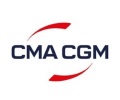New Selektope®-powered antifouling paint launched by Chugoku Marine Paints to protect ships on global, high fouling risk routes

Leading hull coating manufacturer, Chugoku Marine Paints (CMP), has integrated the active antifouling agent, Selektope® in a new coating product developed for worldwide trading vessels.
The newly launched product, SEAFLO NEO M1 PLUS, is the latest expansion of the SEAFLO NEO range and has been designed to protect ocean-going vessels with varying trading patterns and activity levels against soft and hard fouling. Classified as a ‘low volatile organic compound’, SEAFLO NEO M1 PLUS is a low friction, hydrolysis antifouling coating, enabling less environmental impact both by keeping the hull clean and by low biocidal leaching from the coating.
Developed to meet growing environmental market demands for sustainable coatings, SEAFLO NEO M1 PLUS provides a smooth surface to help reduce fuel consumption by lessening the frictional resistance of water flow during operation of ships. It can be applied at both stages of newbuilding and drydocking and has outstanding antifouling performance suitable for ships exposed to high fouling pressure — such as long periods of idle in areas with high water temperature, or static conditions during the outfitting period at a newbuilding stage.
CMP is a long-term partner of Swedish biotech company, I-Tech, developers of Selektope®, and currently produce the highest volume of Selektope®-powered products by any single manufacturer. Due to its high concentrate efficacy and low biocidal load, Selektope® enables a more sustainable solution agai

The above image shows a comparison of how the vessel hull looks with and without Sel
I-Tech CEO Philip Chaabane commented: “We are proud that Selektope® has been selected to act as a core agent in this remarkable new coating launched by Chugoku Marine Paints, targeting the global fleet. Following the first commercial activity with Selektope® 6 years ago, this product marks a new step in utilising I-Tech’s active agent. I am excited to see the Selektope®-powered M1 product move into the market, and contribute to making shipping more sustainable.”
Last year, analysis commissioned by I-Tech of hull fouling condition data obtained from vessel drydocking attendance over a four-year period has revealed that more than 40% of vessels were suffering from over 10% hard fouling coverage on the hull – increasing CO2 emissions by millions of tonnes.
During the pandemic, many vessels have been forced to lay at anchor making them highly exposed to the risk of hard biofouling. The pressure to reduce GHG emissions are higher than ever in line with new IMO targets increases. Vessel owners are looking to innovative technologies like Selektope® to enhance fuel efficiency.
Source: i-Tech

 Hellenic Shipping News Worldwide Hellenic Shipping News Worldwide, Online Daily Newspaper on Hellenic and International Shipping
Hellenic Shipping News Worldwide Hellenic Shipping News Worldwide, Online Daily Newspaper on Hellenic and International Shipping





















 PG-Software
PG-Software